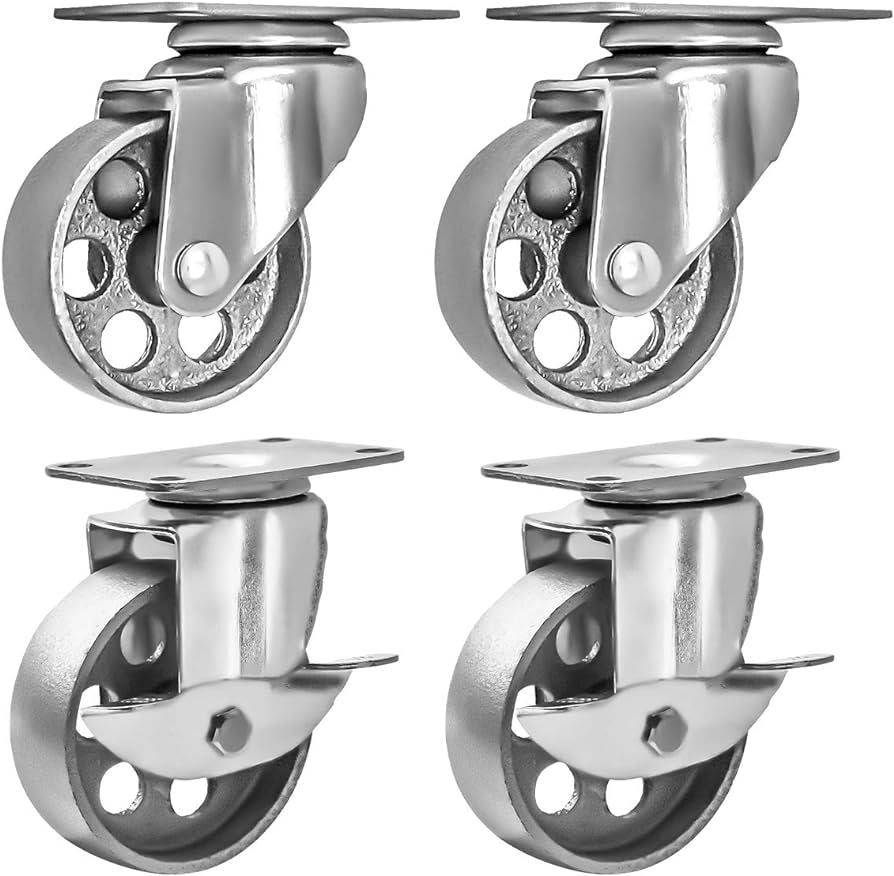Caster Wheels: Enhancing Mobility and Efficiency
Caster wheels are crucial components in various industries, providing mobility and flexibility to a wide range of equipment and furniture. These wheels, typically mounted to the bottom of carts, chairs, and other objects, allow them to move smoothly and easily in any direction. With their versatility and durability, caster wheels play a significant role in improving productivity and efficiency in workplaces worldwide.
Types of Caster Wheels
Caster wheels come in a variety of types and configurations, each designed for specific purposes and environments. Some common types include:
- Swivel Caster Wheels: These wheels can rotate 360 degrees, allowing for easy maneuverability in tight spaces.
- Rigid Caster Wheels: These wheels do not swivel and move only in a straight line, providing stability and control.
- Locking Caster Wheels: These wheels have a locking mechanism that allows users to fix the wheels in place, preventing unwanted movement.
- Pneumatic Caster Wheels: These wheels are filled with air, providing a cushioned ride and making them ideal for use on uneven surfaces.
- Heavy-Duty Caster Wheels: These wheels are designed to carry heavy loads, making them suitable for industrial applications.
Benefits of Caster Wheels
The use of caster wheels offers several benefits:
- Improved Mobility: Caster wheels allow for easy movement of equipment and furniture, reducing the need for manual lifting and carrying.
- Increased Efficiency: By making it easier to move objects, caster wheels can help streamline workflows and improve productivity.
- Versatility: Caster wheels are available in various sizes and configurations, making them suitable for a wide range of applications.
Backflow Testing: Ensuring Water Quality and Safety
Backflow testing is a critical process that helps ensure the safety and quality of our water supply. Backflow occurs when water flows in the opposite direction than intended, potentially allowing contaminants to enter the water system. Backflow testing helps identify and prevent this issue, protecting public health and safety.
The Importance of Backflow Testing
Backflow testing is essential for several reasons:
- Protection Against Contamination: Backflow can allow contaminants, such as chemicals or bacteria, to enter the water supply, posing serious health risks.
- Compliance: Many jurisdictions require regular backflow testing to ensure compliance with safety regulations and standards.
- Prevention of Water System Damage: Backflow can cause damage to water pipes and infrastructure, leading to costly repairs and disruptions in service.
The Backflow Testing Process
Backflow testing is typically conducted by certified professionals and involves the following steps:
- Inspection: The backflow prevention device is inspected to ensure it is in good working condition.
- Testing: A specialized gauge is used to test the pressure in the backflow prevention device, ensuring it functions correctly.
- Certification: If the device passes the test, a certification is issued, indicating that it meets safety standards.
Conclusion
Caster wheels and backflow testing are essential components in ensuring efficiency and safety in various industries. By understanding their importance and implementing proper practices, businesses and communities can improve their operations and protect public health.

